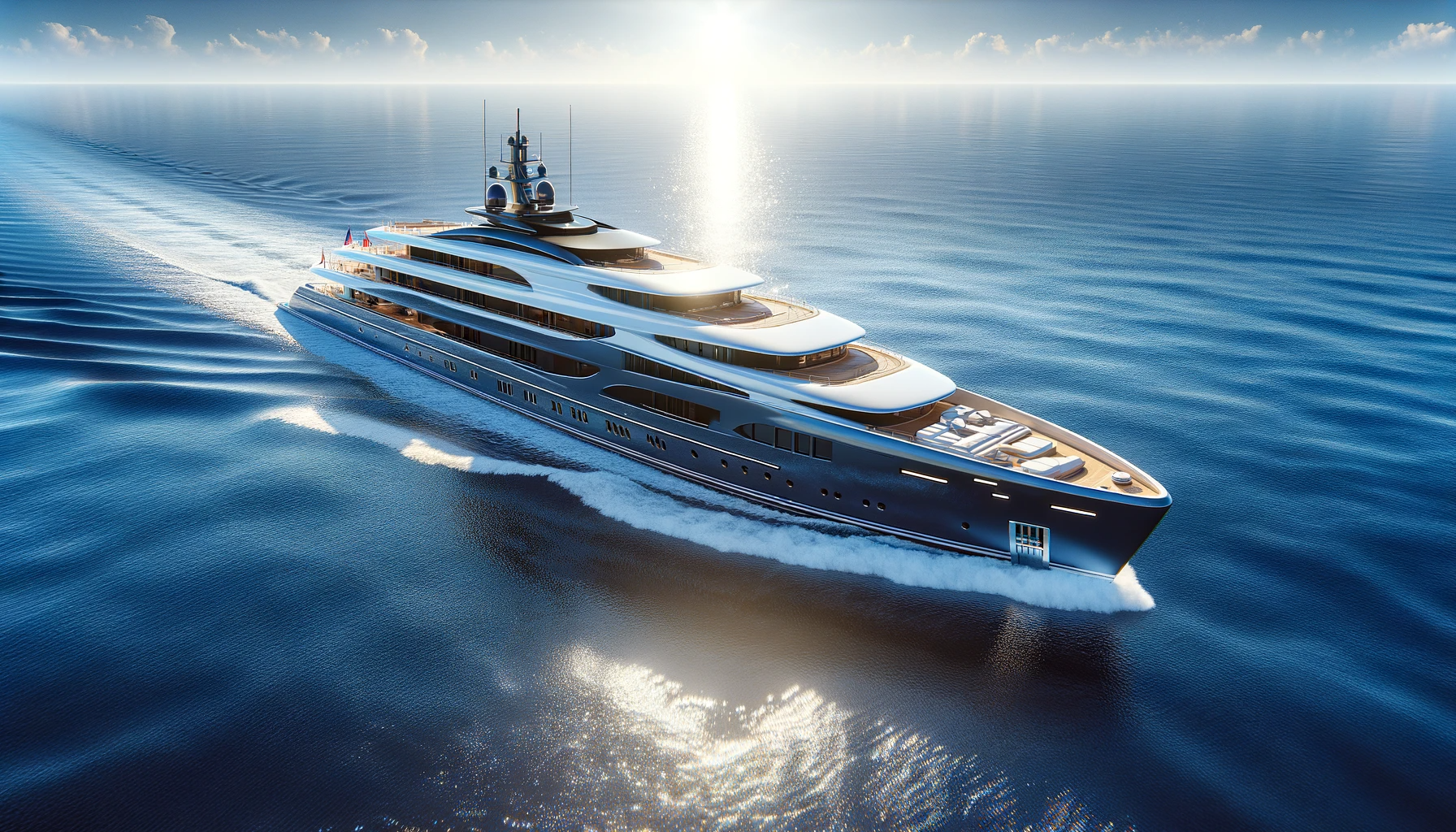Understanding the Basics of Yacht Valuations
When it comes to selling a yacht, numerous factors influence its selling price. At the heart of any valuation is the yacht’s physical attributes, such as its size, age, and make. Generally, larger yachts tend to have higher initial values. However, it’s not just about the length; the yacht’s beam, draft, and overall condition play crucial roles. The yacht’s age and the technological advancements built into it also significantly impact its value. Older yachts may require more upkeep and updates, which can devalue them compared to newer models with cutting-edge features.
Moreover, brand reputation cannot be underestimated—yachts from renowned manufacturers are often considered more desirable and command higher prices. Certain brands have established a legacy of quality, craftsmanship, and performance that buyers find appealing. Another fundamental aspect is the yacht’s condition, both structurally and aesthetically. A yacht that’s been well-maintained and updated with modern amenities and technologies is more likely to attract higher offers.
Documentation of service history is equally important. A comprehensive record indicating proper maintenance and no major accidents or repairs can assure potential buyers that the yacht has been well-cared-for, further justifying a higher price. Lastly, market demand and economic conditions can also sway pricing. In times of strong economic growth, luxury items like yachts typically see an increase in demand, which can elevate their market prices.
Key Factors Influencing Yacht Prices
Several critical factors determine the price at which a yacht sells. One of the most important is the yacht’s condition. Regular maintenance, timely repairs, and overall upkeep significantly impact the yacht’s value. A yacht in great condition with no need for immediate repairs or upgrades is more appealing to buyers. The aesthetic appeal of the yacht, including its design and onboard amenities, also plays a pivotal role. Luxurious interiors, modern kitchens, and well-appointed living spaces can attract more attention from buyers and justify a higher price tag.
Technological features are another major determinant. Yachts equipped with state-of-the-art navigation systems, eco-friendly engines, or other modern technologies are more enticing to tech-savvy and environmentally-conscious buyers. These features not only enhance the yacht’s performance but also its desirability in the market. Moreover, the rarity of certain models can boost desirability. Limited editions or those with custom modifications might catch the eye of collectors or buyers seeking exclusivity.
Furthermore, the yacht’s brand can greatly sway its potential price. Well-known brands with a history of quality and reliability are usually more sought-after, allowing owners to sell at a premium. The yacht’s provenance, or its history of ownership, can also be a selling point. If it has been owned by notable personalities or chartered for prestigious events, its story can add to its market appeal. Finally, geopolitical factors and the overall health of the luxury market can impact yacht sales. A robust market often translates to quicker sales at better prices.
Dealing with Depreciation
Depreciation is a reality all yacht owners must face. Unlike appreciating assets, yachts lose value over time, primarily due to wear and tear, as well as technological obsolescence. Awareness of the depreciation rate of yachts similar to yours can provide a benchmark for setting a price. Depreciation rates can vary; however, the average yacht depreciates around 10% to 15% annually in the first few years after purchase. This rate can stabilize to about 5% to 10% in subsequent years.
Factors such as the brand, build quality, and maintenance also influence the rate. High-end yachts from reputable brands tend to depreciate at a slower pace due to their lasting value and higher initial quality. The use of the yacht is another aspect—those with lower final mileage and less wear typically depreciate less rapidly.
To combat depreciation, owners are encouraged to invest in regular maintenance and periodic upgrades. Investing in modern technology or lavish interior redesigns can help extend the yacht’s appeal, mitigating some effects of depreciation. Owners can also choose to lease the yacht, which could offset some financial losses through extra income. Understanding the typical lifecycle of yachts and staying ahead of required updates help preserve its value in the long run.
The Role of Location in Yacht Pricing
The geographical location of a yacht is more important than many sellers might initially realize. Market conditions and demand vary significantly depending on where a yacht is moored. A key factor influencing this is local economic stability and prosperity. Regions experiencing high economic growth or are renowned for nautical activities often see a higher demand for yachts.
Additionally, yacht shows and nautical festivals can impact sales. Being present in locations that host significant yachting events can improve visibility and connect sellers with potential buyers. A yacht that’s strategically positioned in a high-demand area is likely to attract more buyers and potentially sell for a higher price.
Moreover, geographical preferences play into consumer tastes and regulations. Locations with favorable weather conditions year-round are more appealing to buyers interested in leisure and holidays. Different regions may also have distinct regulatory requirements impacting yacht transfer and registration, which can either simplify or complicate the selling process. A thorough understanding of these regional nuances can aid sellers in maximizing the yacht’s market value.
How Features and Amenities Add Value
The more amenities a yacht has, the more attractive it becomes to potential buyers. Yachts can come with a wide array of features, many of which are luxury-oriented. These might include state-of-the-art entertainment systems, comfortable and sophisticated interior design, and advanced security systems. Whether it’s a spacious deck, high-quality kitchen appliances, or plush bedrooms, each added amenity increases the yacht’s allure. Buyers often look for elements that make their sailing experience pleasurable, from jacuzzis and pools to gyms and cinema setups on board.
Technological innovations are another area where yachts can shine. Up-to-date navigation systems, efficient engine types, eco-friendly modifications, and wireless internet availability can make a yacht more attractive. Furthermore, buyers may consider the yacht’s ability to fit with modern conveniences, such as automated controls for lighting and temperatures. Smart technology integration aligns with current lifestyle preferences for ease and efficiency.
Customization options also bring added value. Yachts that allow buyers some degree of personalization—like custom interiors or thematic designs—might entice those looking for a unique space. Lastly, storage capabilities and additional vehicles, such as dinghies or attached jet skis, can turn a simple boat into a multi-functional entertainment platform. A yacht that stands out with an impressive list of features commands attention and higher offers.
Working with Professional Yacht Brokerages: Advantages and Services
Partnering with a professional yacht brokerage can make all the difference in reaching potential buyers and securing competitive offers. Brokerages bring industry insiders’ knowledge and an expansive network of contacts that aren’t typically accessible to individual sellers. A brokerage will closely analyze the market to position your yacht properly, based on current economic conditions, popular trends, and buyer interests.
One key advantage is their marketing prowess. Experienced brokers can utilize a diverse array of tactics to promote your yacht. This can range from online listings on major platforms and niche market sites to polished photography and video presentations. Some also offer virtual tours, allowing buyers to explore the yacht remotely in detail—this has become increasingly important.
Furthermore, brokerages aid with paperwork and legal aspects of the sale. They handle documentation, coordinate surveys or inspections, and ensure that all transactions meet local and international legal standards. The logistical support can take a considerable burden off sellers, allowing them to focus on the transaction rather than administrative complexities.
With their finger on the pulse of the market, brokers provide strategic advice on negotiations, helping sellers set realistic expectations while aiming for maximum value. They bring an objective, professional perspective that can sometimes be hard for sellers to maintain. Ultimately, a broker can enhance a seller’s ROI far beyond what an independent sale might achieve.
Trends in Yacht Buying and Selling
The world of yacht buying and selling is ever-evolving, heavily influenced by technological advancements and shifting consumer preferences. In recent years, there’s been an increased demand for sustainable and energy-efficient yachts, reflecting a broader societal shift towards environmental responsibility. Buyers are more conscious of their carbon footprint and often seek yachts featuring hybrid engines, solar panels, or other eco-friendly technologies.
Remote work and the pursuit of lifestyle experiences have also catalyzed prolonged periods of time on the water, with some buyers looking for yachts that can function as mobile offices or extended living spaces. This change has popularized vessels that offer comprehensive amenities that support these needs, from robust internet connectivity to ample workspace.
The use of digital platforms for sales has risen, revolutionizing how yachts are marketed and sold. Virtual tours, augmented reality features, and digital payment options have expanded reach, enabling buyers from anywhere in the world to make informed purchases without physically visiting the yacht.
Personalization remains a trend, with buyers often seeking yachts that can offer unique experiences tailored to their tastes. This extends from custom design elements to modular interiors that can transform based on usage needs. Staying abreast of these trends can give sellers a competitive edge when entering the market.
Marketing Strategies for Effective Yacht Sales
Crafting an effective marketing strategy is crucial for optimizing sales efforts. The core of a successful approach is a deep understanding of what differentiates the yacht from others. Highlighting unique features, a compelling backstory, or exceptional maintenance history can catch a buyer’s interest. Presenting high-quality visuals is essential; professional photos and videos that showcase the yacht in a favorable light can enhance its appeal dramatically.
Online platforms play a key role in marketing strategies. Comprehensive listings on specialized yacht sales websites ensure visibility among a targeted audience actively searching for yachts. Social media platforms also offer excellent avenues for reaching broader audiences. Engaging posts, behind-the-scenes content, and interactions with followers can create buzz and build interest.
Engagement through virtual and in-person channels is also vital. Hosting open-house events or collaborating in yacht shows can provide buyers an opportunity to experience the yacht firsthand. Meanwhile, leveraging digital tools such as virtual tours allows long-distance buyers to explore every nook and cranny with ease. Through this integrative approach, sellers create a strong market presence and foster connections with potential buyers.
For effective relationship management, maintaining open communication with potential buyers at every step of the sales process is crucial. Being responsive to inquiries, following up post-viewings, and offering additional insights when needed can demonstrate professionalism and dedication. Good communication fosters trust and encourages prospects to move forward in the sales process.
Staging and Presentation: Making Your Yacht Stand Out
Staging plays a pivotal role in making a yacht attractive to buyers. The first step is ensuring that the yacht is spotless and well-organized. A clean, clutter-free environment allows potential buyers to envision themselves onboard without distractions. Attention to detail, such as polished interiors and clean deck spaces, reinforces a message of meticulous care.
Highlighting distinctive features can further enhance a yacht’s presentation. Impressive technological amenities, such as modern audio-visual systems or elegant design elements, should be showcased prominently. Depending on the yacht’s layout, adjusting furniture and decor to highlight spaciousness and comfort can also be beneficial.
Ambiance contributes significantly to the overall experience. Elements like soft music, subtle fragrances, and good lighting can create a welcoming atmosphere that keeps potential buyers interested. Personal touches, like fresh flowers or luxury textiles, enhanced the onboard lifestyle impression.
Considers how digital representation reflects the yacht’s quality. Online images need to capture the same meticulousness presented in person. Virtual walkthroughs should emphasize flow and ease of movement, conveying the yacht’s potential as a personal or family retreat.
Remaining cognizant of buyer perspectives, such as ease of use or maintenance aspects, positions your yacht as a suitable option. Addressing potential buyer hesitations during the presentation can solidify their interest and trust in the overall condition of the vessel.
Engaging Buyer Relationships and Building Trust
Building solid relationships with prospective buyers is about transparency, trust, and engagement. A friendly, approachable demeanor encourages open communication, inviting inquiries and conversations about the yacht. Answering questions thoroughly and honestly fosters a sense of transparency and reliability. When buyers feel informed and valued, they are more inclined to proceed with transactions.
Providing comprehensive information, from service history to performance specifics, helps buyers make educated decisions. Avoid withholding critical details—even if they highlight less-than-ideal aspects. Offering solutions or contingency plans for those areas, like updated maintenance schedules or available upgrades, shows readiness to address concerns, building trust.
Creating a personalized experience that aligns with buyer preferences or interests can enhance engagement. Whether focusing on features aligned with their past purchase behaviors or highlighting ideal uses, personal touches make buyers feel attended to.
Gathering feedback post-interactions can fine-tune the approach, providing insights that optimize future engagements. Adapting sales tactics based on buyer responses demonstrates attentiveness and dedication to meeting their needs.
When a buyer is ready to commit, ensuring a smooth transaction process maintains positive momentum. Clearly communicating next steps, providing documentation promptly, and being available to address last-minute questions contribute to a transparent process. Follow-up support, concerning maintenance, operation handbooks, or even contact introductions, solidifies a bond and positions sellers as supportive partners in the acquisition journey.
Navigating the Final Steps: Making the Sale
The process of making a sale goes beyond just agreeing on a price. It involves a series of final steps that ensure both parties are satisfied and well-informed. Negotiation is often crucial, requiring a clear understanding of what the yacht is truly worth and what final concessions might be made. Transparency throughout these negotiations creates trust and ensures both parties feel comfortable with the final deal.
Once agreements are reached, paperwork is the next hurdle. Ensuring all documents are in order and compliant with local and international regulations protects both buyer and seller from potential mishaps. Engaging with professionals well-versed in maritime laws or contractual obligations streamlines this process. Likewise, conducting inspections or surveys pre-finalization provides an added layer of assurance, validating that what was promised aligns with the actual condition and specifications of the yacht.
Financing options or final transaction arrangements require clarity. Understanding buyer preferences for payment and communicating seller expectations ensures a smooth exchange. Discussing potential tax considerations or regulatory fees up front averts any last-minute complications.
The handover itself marks an exciting conclusion to the process. It’s an opportunity to leave buyers with a positive impression, offering guidance such as detailed operating manuals, or introducing them to preferred service contacts. Handovers should highlight how to maximize enjoyment and care for their new acquisition. A reassuring, informative farewell indicates sincerity in helping buyers settle comfortably into yacht ownership.
Lastly, post-sale communication shouldn’t be neglected. Providing follow-ups, such as gentle check-ins or additional advice about their yacht, strengthens rapport. Positive experiences lead to recommendations or repeat interactions—key components of a long-standing reputation for excellence in yacht sales.
In conclusion, selling a yacht is an intricate process that involves many considerations, from valuing the vessel to marketing and negotiating with potential buyers. Fly Yachts supports this journey by sharing expertise and guidance tailored to the unique challenges of the yacht market. With their help, sellers can confidently navigate the complexities of the sales process, ensuring successful and rewarding transactions.
Fly Yachts offers a wide range of services and products for yachting enthusiasts. Explore various luxury yachts for sale here. Learn about Fly Yachts’ history, team, and distinct industry knowledge in the About Us section. If custom yacht construction interests you, check out the options for customization on the Build a Yacht page. For those interested in traveling, the Charter Destinations page offers worldwide locations for yacht charters, while the Yachts Charter page provides details on chartering luxury yachts. To enhance your yachting knowledge, visit the Compass Articles and stay updated with the latest in yachting news on the Gulfstream News page. Fly Yachts also assists in selling yachts, with comprehensive services described on the Sell Your Yacht page. Additionally, if you’re interested in aviation, you can browse luxury aircraft for sale on the Aircraft for Sale page. For any inquiries or assistance, visit the Contact page. Finally, head to the Homepage to get an overview of all Fly Yachts’ offerings.




